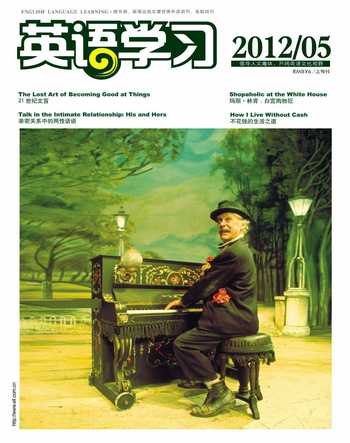公孙丑(下)
2012-04-29
4.2 孟子将朝王1。王使人2来3曰:“寡人4如5就见者也6,有寒疾,不可以7风。朝8将视9朝,不识10可使寡人得见乎11?”
对曰:“不幸而有疾,不能造12朝。”
明日13,出弔14于东郭氏15。公孙丑16曰:“昔者17辞以病18,今日弔,或者19不可乎?”
曰:“昔者疾,今日愈,如之20,何不弔?”
王使人问疾21,医来。孟仲子22对曰:“昔者有王命23,有采薪之忧24,不能造朝。今病小愈,趋25造于朝。我不识能至26否乎。”使数人要27于路,曰:“请必无归28而造于朝。”
不得已29,而之30景丑31氏宿焉32。景子曰:“内则父子,外则君臣33,人之大伦34也。父子主35恩,君臣主敬。丑见王之敬子也,未见所以36敬王也。”
曰:“恶37,是何言也!齐人无以38仁义39与王言者40,岂以仁义为不美41也?其心曰: ‘是42何足43与言仁义也。云尔44,则不敬莫大乎是45。我,非46尧舜之道,不敢以陈47于王前。故齐人莫如我敬王也。”
孟子正打算去朝见齐王,齐王派使者传诏说:“寡人本应前去见你,可是现在着凉病了,怕风不能来。早上打算临朝,不知能不能让寡人见到你?”
孟子回答说:“不幸我也得了病,不能到朝。”
第二天,孟子到东郭家吊唁。公孙丑说:“昨天您因病而推辞不去上朝,今天又去吊唁,或许不太好吧?”
孟子说:“昨天有病,今天痊愈,这种情况,为什么不能吊唁?”
齐王派人探问病情,御医也来了。孟子的弟弟对他们说:“昨天接到王上召命的时候,他因为身体不适,所以说不能上朝。今天病稍好了一些,急忙上朝去了。我不知能不能走到?”使者走后,孟仲子派了好几个人在路上拦截孟子,对他说:“请务必别回家,而是上朝去。”
孟子没有办法,只好去景丑家,在那里过夜。景先生说:“内有父子关系,外有君臣关系,都是重大的伦理关系。父子关系重恩情,君臣关系重尊敬。我景丑看到的都是王上敬重先生,没看见您敬王上的事。”
孟子说:“哎,这是什么话!齐国没人跟王上讲仁义,难道是他们认为仁义不美好吗?大家心里说:‘这人哪里配跟他谈仁义。说这种话,则没有比这更大的不敬了。我,不是尧舜的道理,不敢在王上面前陈述。因此齐国没有人像我这样尊敬王。”
Mencius was about to go to court to see the King when the King sent a messenger over to summon him. The messenger said:“His Majesty should have come over to see you, but he is taken ill with a cold. So he cant come for fear of the wind. Tomorrow morning, however, his Majesty will hold court and wonders whether it is possible for him to see you then.”
“Unfortunately,” replied Mencius, “Im taken ill, too. Im sorry I cant go to the court.”
The next day Mencius set out to attend a wake at Minister Dongguos home. Gongsun Chou, a student of his, said: “Yesterday you declined the Kings summons by saying you were ill, yet today youre going to a wake. Is this perhaps not very appropriate?”
“Yesterday,” said Mencius, “I was ill; today Im better. Why cant I go to offer my condolence?”
After Mencius went out, the Kings messenger came to ask after his condition along with the royal physician. The younger brother of Mencius said to them: “Yesterday when the Kings summons came, he was unwell, so he said he wasnt able to go to the court. Today, as he felt slightly better, he hurried off to the court. But Im not sure if he is able to make it there.” After the messenger left, he sent several men out to intercept Mencius on the roads and tell him: “Please, dont return home under any circumstances. Go to the court instead.”
So there was nothing Mencius could do but go to Minister Jing Chous home to spend the night there. Mister Jing said: “Within the family there is the relationship between father and son; outside the family there is the relationship between sovereign and subject. These are two of the most important ethical relationships. In a father-son relationship, kindness prevails; in a sovereign-subject relationship, respect prevails. What I have seen, sir, is his Majestys respect for you, I have never seen you showing any respect for his Majesty.”
“My goodness, what are you talking about! Nobody in Qi talks to the King about benevolence and righteousness. Does this mean they think these attributes are not admirable? In their hearts they
simply say: ‘This man is not worthy of us talking to him about benevolence and righteousness. Saying such things would be the most disrespectful thing of all. I, in contrast, would never dare present anything to his Majesty which is not in line with the Ways of Kings Yao and Shun. Therefore, I can say nobody in Qi is as respectful to the King as I am.”
注 释
1. 将朝王:将的意思是‘打算,英文是be about to‘正要;朝的意思是‘朝见,王指齐王,朝王即go to court to see the King。
2.使人:派人。这里的人不是一般人,不应像理雅各(Legge 1875)那样译成a person,而是使者,因此可译成courier(Hinton 1998)或messenger(Lau 2003)。
3. 来:这里有及物和不及物两种解读,都说得通。作为不及物谓词,来的意思是‘前来;作为及物谓词,来的意思是“召之使来”(《汉语大字典》),后面孟仲子也说“昔者有王命”,可见使者传达的是一种王命,即英文的summons,只不过言辞显得较为客气。孟子出于自身的职责和意愿,本来打算上朝。现在齐王派人来通知他,令他感到不爽。他要是去了,是听命于齐王,而他对齐王明显有看法,不喜欢这种听命的感觉。这就是为什么他打定主意不去上朝。
4.寡人:英语有所谓royal we,在一定情况下相当于寡人,但这里不太合适,译成I则丧失了王者气派。由于是使者传话,可以译成第三人称的his Majesty。
5. 如:有三种解读。一种是‘若,即‘如果的意思(焦循《孟子正义》);一种是‘将(王引之《经传释词》);一种是‘宜;当(王引之,同上;杨伯峻 1960)。最后一种解释最通顺,可译成should have come,也可译成was wishing(Legge)、wanted to come(Hinton)或was to have come(Lau)。
6. 就见者也:就的意思是‘趋向;往……去(《汉语大字典》);者=诸=之,是宾语;也的意思是‘是。
7.以:因为。以风可以解读为‘因为怕见风,译成for fear of the wind,也可译成may not expose myself to the wind(Legge)、must avoid the wind(Hinton)、cannot be exposed to the wind(Lau)。
8.朝:赵岐《孟子章句》的解读是“傥可来朝”;杨伯峻也持这种解释,意思是‘你要是来上朝,我就临朝处理政务。这种解释有三点说不通。第一,从使者所传达齐王话的整体来看,齐王对孟子显然还是相当尊敬的,可是这种解读完全听不出尊敬的口吻;第二,连续两个不同主语的句子不带主语,意思不清楚;第三,如果是这种解释,接下来的句话就完全没有必要。较为合理的解读是,朝/zhāo/表示‘早晨。
9.视朝:视有‘治理;处理的意思,今天我们还说视事。视朝就是‘处理朝政(hold court)。
10.识=知。这里的不识不是简单的‘不知道,而是‘不知道而且想知道,即英文的wonder。
11. 可使……得见乎:是否有可能让……见到(whether it is possible for him to see)。也可以译成whether you will give me the opportunity(Legge)、 if Ill have a chance to see(Hinton)或if I shall have the opportunity of seeing(Lau)。
12. 造:最基本的意思就是‘到;去(《汉语大字典》)。
13. 明日:第二天。
14.出弔:出去追悼死者。隐含主语是孟子。之前的译法是went out to pay a visit of condolence(Legge)、went to offer…his condolence(Hinton 1998)和went on a visit of condolence。这里译成set out to attend a wake‘守灵,因为a visit of condolence或offer his condolence所花的时间可以很短,a wake的时间却很长。
15. 东郭氏:齐国一个姓东郭的大夫家族。译文点明其身份。
16.公孙丑:齐国人,孟子的弟子,后来与万章等参与了《孟子》一书的写作。译文也点明其身份。
17. 昔者:这里指昨天。
18. 以病:以有病作为理由或借口(by saying you were ill),也可以译成on the ground of being unwell(Legge)、saying you were sick(Hinton)或excused yourself o the ground of illness(Lau)。
19. 或者:或的本义是‘疑惑。这里可以解读为‘或许。
20. 如之:如的意思是‘像;之=是=此。连在一起,意思是‘这样的话。
21. 问疾:探问病情(ask after his condition),英语也可以是inquire about his sickness(Legge)、to see how Mencius was feeling(Hinton 1998)、或inquire after Menciuss illness(Lau 2003)。
22.孟仲子:赵岐的注说“孟仲子,孟子之从昆弟,学于孟子者也。”从昆弟的意思是‘跟从的兄弟。音译成Mang Chung(Legge)、Meng Chung(Hinton)或Meng Chung-tze(Lau)无法说明他和孟子的关系,所以意译成the younger brother of Mencius。
23.命:这个命不宜译成order(Legge 1875),可以是message(Hinton)或summons(Lau)。
24. 采薪之忧:薪的意思是‘柴火。忧在这里一般解读为‘疾病。采薪之忧又称负薪之忧,意思是‘拾/背柴时扭伤了身子。《礼记·曲礼下》里说,负薪之忧是臣子对君主常用的一个借口。用今天的话说,就是身体不适。
25. 趋:快步走。可以译成hastened(Legge、Lau)或hurried off(Hinton)。
26.至:抵达;到达。英文可以说have reached it(Legge)或get there(Hinton、Lau),本文译成make it。
27. 要/yāo/于路:在路上拦截(intercept),可译成waylay(Lau)。译成look for…on the way(Legge)或find(Hinton)也说得通,但不准确。
28.必无归:必=务必;无=勿,是否定祈使句标记;归的意思是‘回到原处。可译成Do not, under any circumstances, come home(Lau);译成You mustnt return home,口气弱了一些;译成I beg that, before you return home, you will go to the court(Legge),口气太弱。
29.不得已:赵岐的注是“孟子迫于仲子之言不得已,而心不欲至朝。”焦循的解读是,已的意思是‘止,不得止就是‘不得不往朝也。也就是说,孟子不得去了朝廷。可是如果孟子上过朝了,他可以光明正大地回到住处,不必到景丑家过夜。本文赞同杨伯峻的解读,即孟子没有办法回到住处,只好另找过夜之处。译成So there was nothing Mencius could do but,也可译成felt himself compelled to(Legge)或was forced to(Lau)。
30. 之:往;到……去。
31. 景丑:齐国的另一位大夫,姓景名丑。可能是《汉书·艺文志》里所说著《景子》三篇文章的那位儒家学者景子。译文点明其身份。
32.宿焉:在那里过夜。
33.君臣:可以译成sovereign and subject(Hinton);也可译成prince and minister(Legge)或prince and subject(Lau)。
34. 人之大伦:最重要的人伦关系(the most important ethical relationships),人伦就是伦理(ethics)。按字面意思译,是great relations among men(Legge)、great bonds of human community(Hinton)。
35. 主:以……为主,可以解读为‘看重或‘压倒一切(prevail)。也可译成the ruling principle is(Legge)或rules(Hinton)。译成exemplifies‘体现(Lau),意思有些走样。
36. 所以:所是不定代词,意思是‘什么(地方/事情)。
37.恶,是何言也!:恶是表示惊愕的语气词,应该译出来。译成Oh!What words are these?(Legge),口气不够强烈。本文译成My goodness。是何言也!可译成What a thing to say!(Hinton、Lau)。
38.以:拿,用。
39. 仁义:本文采用理雅各的译法。不同的译法是Humanity and Duty(Hibton)和
benevolence and rightness(Lau)。
40. 者:这里相当于英语the fact that。
41. 美:译成admirable(Legge)比beautiful在搭配上更顺。
42. 是:=此。这里指齐王,因此应当解读为‘此人;这个人。
43. 足:本文译成worthy of。也可以译成fit(Legge)。
44. 云尔:赵岐对这两个字的注解是“绝语之辞也”。云很早就有‘说的意思,尔有‘如此;这样的意思(《汉语大字典》),云尔这里可以解读为‘说这种话。
45. 莫大乎此:没有比这更大的了。
46. 非:本文解读为‘不符合(anything not in line with)。也可译成any but(Legge)、anything less than(Hinton)或anything short of(Lau)。
47. 以陈:以表示‘用,这里可以解读为‘拿来;陈表示‘陈述。陈于……前,本文译成present … to,也可译成set forth before(Legge)、offer(Hinton)或put before(Lau)。
